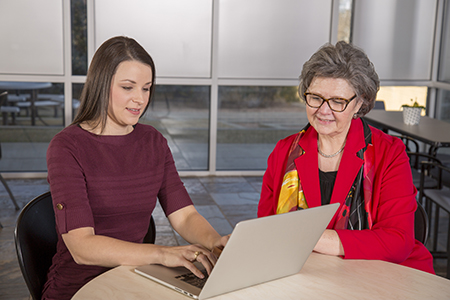Family Nurse Practitioner program succeeds with whole healthcare mission

Texas Wesleyan University’s newest program, the Doctor of Nursing Practice – Family Nurse Practitioner program, launched this spring with a mission that resonated with registered nurses. The teaching philosophy of whole healthcare brought in a 16-student cohort, exceeding the expected class size of 11.
“Feedback we’re getting from students is very positive – many have said this is just the type of program they are looking for,” Heidi Taylor, Ph.D., RN, dean of the School of Health Professions, said.
Putting the “care” back in healthcare
The four cornerstones of Texas Wesleyan’s Family Nurse Practitioner program comply with national nursing program standards, while adding a “Smaller. Smarter.” approach to online learning and coursework that puts the “care” back in healthcare:
- Nurse coaching to help clients make lasting lifestyle changes to impact their health
- Business literacy for nurses who go on to own and run their own practice
- Whole-person care, which means learning how to provide care that addresses the mind, body, spirit and environment
- Self-care for nurses to help prevent future burnout
The new program complements Texas Wesleyan’s reputable nurse anesthesia program, which is the largest in the U.S. with more than 21 clinical sites in 9 states, and its growing counseling programGraduate Programs, with more than 120 students serving more than 1,500 clients from Tarrant County each year.
“It takes hard work from many people to create a program like this and I am grateful to have a committed team to help get this up and running,” Taylor said. “There are many people from several departments within the University working behind the scenes to make this happen, and we are finally able to see the hard work pay off.”
The Doctor of Nursing Practice – Family Nurse Practitioner program (FNP) is directed by Deborah Flournoy, Ph.D., APRN, FNP-BC. It can be completed in as little as three years or as long as seven with online classes and hands-on clinicals. The first cohort of students are set to graduate in Dec. 2020.







